FW
BGMEA has urged buyers to make their position clear with firm commitments regarding settling of outstanding payments and other issues. The ongoing Covid-19 pandemic and subsequent lockdown across the world has seen Bangladesh lose around $3 billion in the form of cancellations or shipments being held up.
As per the reports from more than 1,100 factories, Bangladesh has lost around $3 billion in the form of cancellation or shipments being held up. Its factories are in serious trouble since it needs to settle the payments of the raw material suppliers and most importantly need to pay salaries to our workers and employees.
BGMEA expects brands to make their position clear by giving firm commitments regarding settling outstanding payments, accepting ready and work in progress stocks, taking responsibilities of confirmed orders for upcoming months, and thus solving the problems amicably with suppliers. Offering unrealistic proposals with regard to payment and shipment terms will not help at all since this will make our workers and factories disproportionately affected.
BGMEA and its members are maintaining close communication with the buyers. It is urging brands to work with us to solve the issues by helping each other.
The European Union (EU) plans to provide €5 million in cash to support garment workers in Myanmar who have been affected by COVID-19. The Myan Ku (Quick Assistance) emergency cash fund will go directly to cut, make, pack (CMP) workers who have lost their jobs as a result of COVID-19 As of end March, over 25,000 workers from more than 40 factories have been laid off, while 350,000 are at great risk of either being suspended without pay or losing their jobs permanently, according to the EU. The industry hires up to 700,000 predominantly female workers across 600 factories.
The Centre for Economic and Social Development (CESD) a Yangon-based think tank says, as much as 40 perc ent of Myanmar’s factories have been severely disrupted by COVID-19, and that one-third of the factories are dependent on the EU market. Factories in the country, especially those that manufacture garments and textiles, had already been facing unprecedented challenges since February as supply of raw materials from China stalled and importers from the West began slashing orders. Cash relief is available to all affected garment workers, regardless of whether the factories are local or foreign-owned.
The Myan Ku fund was mobilised through the EU’s Humanitarian Development Peace Nexus Response Mechanism. SMART Textile & Garments, an EU-funded project on promoting labour and environmental standards in the industry, will implement the fund and cash transfers will be made via Wave Money. Around 80 per cent of the funds will be used to support at least 30,000 to 80,000 workers laid off and driven out of their residences. They will receive K 75,000 per month for April, May and June.
Of the remaining funds, 10 per cent will be used to support 3,000 to 8,000 people who were illegally terminated. These will K125,000 per month. The remaining 10 per cent will be given directly to SME workers via Wave Money.
Formed by Gerber Technology, the PPE Task Force, acquired two new members: Coats, an industrial thread leader, and Elevate Textiles, a global provider of advanced, high-quality products and mission critical textile solutions.
As a part of this collaboration, Coats will use its extensive network of apparel manufacturers and industry leaders to connect the Gerber PPE Task Force to the potential outlets for their products. It will offer them raw materials used for the manufacturing like quality threads, trims, specialist products along with technical support and service for seamless production. Coats will also guide these manufacturers to adhere to PPE regulation.
Under this collaboration, Elevate’s Burlington, American & Efird (A&E), and Gütermann brands will provide the industry with critical barrier fabric and thread components. These are used in the manufacturing of PPE products including masks, isolation gowns and other medical garments.
Burlington’s The Maxima collection of fabrics is known the standard in the industry for reusable isolation and surgical gowns and meets AAMI standards for Levels 1-4 and FDA standards. On the other hand, A&E has RSL approved, critical PPE sewing threads for a multitude of PPE products in its basket.
The National Council of Textile Organizations (NCTO), representing the full spectrum of U.S. textiles from fiber through finished products, issued a statement today from textile executives leading the nation’s unified effort to produce critical personal protective equipment (PPE) to help hospitals and healthcare workers fighting the COVID-19 pandemic.
In factories across the country, textile companies are retooling production virtually overnight to produce PPE products ranging from hospital gowns, face masks and shoe covers to scrubs. The industry is playing a critical role in the nation’s manufacturing strategy and solution to help contribute to the high demand for these products.
U.S. apparel and textile executives, representing the entire supply chain, from fiber to finished apparel, share their involvement in the monumental task of providing PPE products during challenging times.
The quotes—for use in any articles you are developing—from textile and apparel executives below offer a snapshot of efforts throughout the entire supply chain to provide PPE products for our nation.
Uster Technologies has appointed Oswald Baldischwieler as the new head of the textile technology department and member of the Executive Committee in April. Baldischwieler is an experienced textile technologist and manager. His entire career has been dedicated to the development and promotion of the textile industry, in a number of senior roles.
After working as Mill Manager for the German textile producer Lauffenmühle and as Technical Director and Chief Operating Officer at spinning mill Hermann Bühler, Baldischwieler joined Uster Technologies in 2017. As product manager for in-line process control, he has been responsible for a large part of the Uster portfolio.
Uster Technologies offers a wide range of textile services and support to its customers and partners. These include the Uster® Statistics global benchmarks, laboratory testing services, and textile training and consulting programs. A worldwide team of more than 50 textile technologists, together with more than 200 service engineers, is taking care of 4,500 customers in 75 countries – working at customer sites or in Uster laboratories – conducting training, carrying out tests and providing application know-how.
Central America's second-hand or used clothing industry is experiencing a boost due to the growing demand for affordable clothing among the majority of the population with limited resources and the global trend towards recycling and reusing garments.
“Central America has become a market for second-hand textiles from countries such as the United States, Canada, the European Union, China, and South Korea”, according to a report titled "Reuse before throwing away" by the U.S. consulting firm Garson & Shaw.
The report presented in Costa Rica revealed that over four million tons of used clothing is traded annually, with the used clothing industry in Guatemala, El Salvador, Honduras, and Nicaragua growing by $274 million between 2011 and 2021.
The report estimates that the used clothing sector will provide over three million jobs in the four Central American countries by the early 2040s and generate nearly $200 million in profits through taxes. Nicaragua experienced the fastest and most significant growth in this industry, with 80% of its population purchasing used clothing or footwear. In 2021, Nicaragua imported 52,500 tons of used clothing, ranking 19th among the world's largest importers. The benefit through taxes for the state was $23.7 million in that year alone, and the industry is expected to account for 1% of the national GDP.
Guatemala is another country with a high need for affordable clothing, and demand for used textiles remains strong. In 2021, the country imported 130,000 tons of used clothing, ranking as the ninth-largest importer of these products in the world. The benefit through taxes for the state amounted to $40.2 million in that year, and imports have grown by 10% since 2017.
Honduras imported 66,000 tons of second-hand clothing in 2021, ranking 17th among the world's largest importers. The tax benefits delivered to the state by the used clothing industry amounted to $34.1 million in that year, representing 1.6% of Honduras' GDP.
El Salvador imported 35,000 tons of used clothing in 2021, ranking 23rd in terms of imports worldwide. The second-hand textile industry accounts for 1.4% of the national GDP, and the government collected $16 million in taxes through this industry.
The used clothing industry in Central America is proving to be a vital contributor to the economy, providing affordable clothing to the majority of the population with limited resources, creating jobs, and generating significant tax revenues for the governments of these countries.
 Even before COVID-19 pandemic, most Western brands and retailers were struggling to survive. In the new millennium, brands and retailers increased their reach to new geographies by opening more and more stores, as sales were shrinking or stagnating in the Western world but that doesn’t seem to have worked well.
Even before COVID-19 pandemic, most Western brands and retailers were struggling to survive. In the new millennium, brands and retailers increased their reach to new geographies by opening more and more stores, as sales were shrinking or stagnating in the Western world but that doesn’t seem to have worked well.
Mounting troubles and then a pandemic…
For a couple of years, they were increasingly facing a retail apocalypse, weakening consumer confidence, reducing sales through stores, consistently losing customers to fast fashion and value retailers. Add to that the growth of online retailers; increasing operative expenses like rentals, borrowings and coupled with thin or no profits, and then came the blow from a pandemic. COVID-19 is seems to be the last nail in the coffin for many big brands and retailers.
COVID-19, has swept the globe, forcing people apart and out of public sphere. By and large, only stores selling essential goods remain open, the current environment is no place for department stores. With physical locations contributing zero sales and e-commerce also feeble to make up for it, brands and retailers are taking desperate measures, pulling financial levers like draw-downs of their credit revolvers, hitting the brakes on growth plans, furloughing their workforce even potentially skipping on rent. However, it’s still not clear how much any of this will help ultimately. 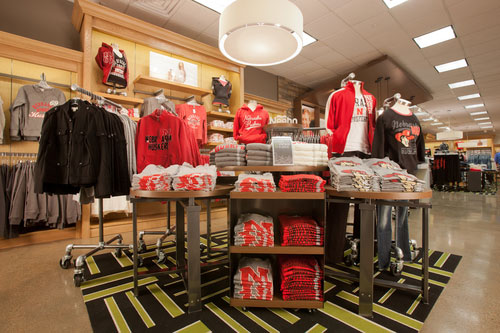
The main problem of the retail sector was that there wasn't much of a place for department stores even before COVID-19. As devastating as it has been to retail as a whole and this segment specifically, the outbreak is only partly to be blamed for department stores' current woes or the predicament that awaits them once it subsides, analysts say.
The problem was that most store chains were running at too many locations, without regard for local culture or basic merchandising practices that makes any store a pleasant place to be, feels Thomai Serdari, a professor of luxury marketing and branding at New York University's Stern School of Business. "They brought it to themselves,” she told Retail Dive in an interview. “They can't blame either the economy or the virus for it."
The unlikely scenario of going back to business as usual
Trade experts now feel, only a few retailers will come out of this unprecedented moment unscathed but department stores are at a point of no return. None can go back to business as usual. Some may not come back at all.
Some players potentially face a decline of 30 to 50 per cent or even more, for many months if not a year or more, and some will be good, believes retail analyst Nick Egelanian, President of retail real estate firm SiteWorks. That makes their current cash crunch, in some ways, the least of their problems, and trimming their fleet a top concern. "Look for all department stores to use this virus as a catalyst to close, right size and/or reposition (with retention agreements with landlords becoming even more prevalent)," he told Retail Dive.
"This is the time to look internally, for these companies to really take a look at who they are, what they stand for — and does it have any correlation to what we’re going to care about after this.” Sanford Stein, Retail Consultant and Author of Retail Schmetail sums up.
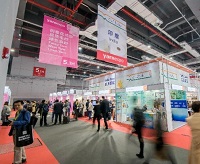 Originally scheduled to take place in March, Intertextile Shanghai Apparel Fabrics – Spring Edition, Yarn Expo Spring and Intertextile Shanghai Home Textiles – Spring Edition have been postponed over concerns surrounding the COVID-19 outbreak.
Originally scheduled to take place in March, Intertextile Shanghai Apparel Fabrics – Spring Edition, Yarn Expo Spring and Intertextile Shanghai Home Textiles – Spring Edition have been postponed over concerns surrounding the COVID-19 outbreak.
Intertextile Shanghai Apparel Fabrics and Yarn Expo will now merge with Intertextile Shenzhen Apparel Fabrics and the debut Yarn Expo Shenzhen, which will be held from July 15 – 17, 2020, with exhibitors of the Shanghai fairs given the option to participate in the Shenzhen editions instead.
Exhibitors of Intertextile Shanghai Home Textiles – Spring Edition have the option to partake in the Autumn Edition instead, which will be held from August 24 – 26, 2020.
The fairs will take place in the brand-new Shenzhen World Exhibition and Convention Center.
Intertextile Shenzhen Apparel Fabrics will take place from 15 – 17 July with an estimated 2,000+ exhibitors expected to join a space of 60,000 sqm. In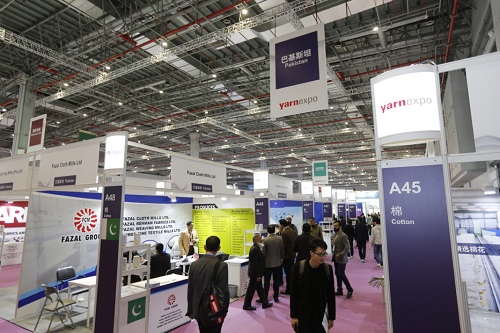 addition to being held with the first Shenzhen edition of Yarn Expo, CHIC and PH Value will also take place concurrently.
addition to being held with the first Shenzhen edition of Yarn Expo, CHIC and PH Value will also take place concurrently.
The Autumn Editions will take place from September 23 – 25, 2020 at the National Exhibition and Convention Center in Shanghai. In 2019, the Autumn Edition of Intertextile Shanghai Apparel Fabrics saw 4,422 exhibitors from 33 countries and regions, along with 89,662 trade buyers from 120 countries and regions. Yarn Expo Autumn 2019 welcomed 543 exhibitors from 14 countries and regions, and 19,155 trade buyers from 93 countries and regions. The fairs will be held concurrently with CHIC and PH Value. Intertextile Shanghai Home Textiles – Autumn Edition
The 2019 edition featured 1,147 exhibitors from 27 countries and regions, and 35,390 trade buyers from 117 countries and regions. The Autumn Edition of this fair is due to take place from 24 – 26 August. Intertextile Shenzhen Apparel Fabrics and Intertextile Shanghai Apparel Fabrics are co-organised by Messe Frankfurt (HK) Ltd; the Sub-Council of Textile Industry, CCPIT; and the China Textile Information Centre.
The co-organisers of Yarn Expo Shenzhen and Yarn Expo Autumn are Messe Frankfurt (HK)and the Sub-Council of Textile Industry, CCPIT. Intertextile Shanghai Home Textiles is co-organised by Messe Frankfurt (HK); the Sub-Council of Textile Industry, CCPIT; and the China Home Textile Association (CHTA)
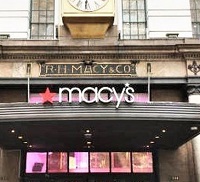 With customers dwindling and stocks rising, the retail sector was already facing a crisis. Covid-19 has only added to their woes. The pandemic has forced people out of public sphere as only stores selling essential goods remain open, department stores are worst hit.
With customers dwindling and stocks rising, the retail sector was already facing a crisis. Covid-19 has only added to their woes. The pandemic has forced people out of public sphere as only stores selling essential goods remain open, department stores are worst hit.
Major retailers like Nordstrom, Macy's, J.C. Penney and Kohl are taking desperate measures to deal with the crisis. Besides halting their growth plans they have also furloughed most workforces and potentially skipping rent. Neiman Marcus and Southern department store Belk have also furloughed some workers and introduced temporary cut salaries.
Credit Suisse analysts say, department stores are the worst hit in this scenario. Not only do these stores face high debits but also their discretionary costs too remain low. Their relatively low rents in many areas also work against them as at only about 1.5 per cent sales, any relief won't make much dent.
However, Thomas Serdari, Professor at New York University’s Stern School of Business believes the main problem these stores face is their dwindling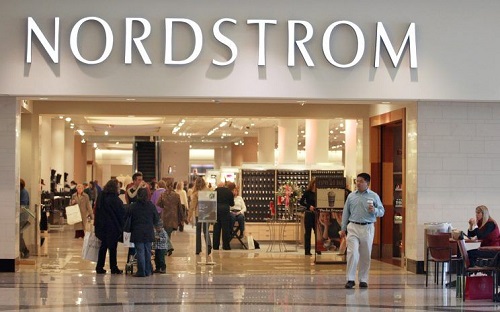 popularity even before the Convid-19 outbreak. The outbreak is only partly to blame for their' current woes as most of them have been running too many locations, without regard for local culture or the basic merchandising practices,
popularity even before the Convid-19 outbreak. The outbreak is only partly to blame for their' current woes as most of them have been running too many locations, without regard for local culture or the basic merchandising practices,
Thus, these stores are unlikely to come out of this unprecedented moment unscathed. They may never be able to go back to business again. Some of these players also face profit declines of 30 to 50 per cent or even more. That makes trimming their fleets a top priority.
Retailer shut stores as demand dwindles
JC Penny’s flagship store in New York’s Fifth Avenue too is likely to face a decline in profits. As retail consultant Sanford Stein, Author of Retail Schmetail told Retail Dive in an interview, the retailer is unlikely to resume business even after 18 months from now. Similarly, Nick Egelmian, President of SiteWorks predicts at least a major debt restructuring.
According to Egelanian, Kohl's is likely to be acquired, possibly by Amazon. However, Nordstrom would be a survivor; though it would have to close stores. The store is also likely to be privatized though it would have to do some recalibrating. Macy’s , which expanded exponentially early this century by gobbling up local and regional department store chains nationwide, is destined to either shed as many as 500 stores or shut up locations where the demand for its products is dwindling.
Customer service to gain prominence
However, this could also be a blessing in disguise for retailer as it would enable them to finally understand problems in their business model. According to Sanford Stein, Retail Consultant and Author of Retail Schmetail, go-to customer bait, promotions, may lose some of their draw, despite the financial pressures looming for many consumers. He advises companies to relook internally at their operations, value and future aspirations. The retailer believes henceforth the whole aspect of what a retailer will become far more important than it ever was before. Providing value will gain much more importance than price as customers will emphasise on a positive shopping experience above everything else.
Inditex SA’s main import and export airport hub in Spain is ramping-up as business in Asia picks up, following restrictions due to COVID-19 earlier in the year. The pick-up in traffic in Zara offers a window into the notably tight-lipped company’s operations, notably in the Eastern Asian market. The retailer uses the airport as a base to import textile products and export apparel. Under Inditex’s unique distribution model, the vast majority of its apparel manufactured outside Spain has to be sent to the country and then exported to stores around the world.
The company has been able to continue certain operations in Spain in spite of a government order to place non-essential economic activity on standstill. With the slowdown in Spain and other countries, Inditex has re-assigned the majority of its space in the airport as a base of imports of medical goods.
The Zaragoza airport is one of Spain’s three largest cargo airports, and had the second highest cargo traffic in February, before the Coronavirus crisis hit the country in full.












